Alex
by Pierre Lemaitre, trans. by Frank Wynne
Alex begins like any number of other psychological thrillers: an attractive young woman is snatched off the streets of Paris by a strange man. He takes her to an abandoned warehouse and tells her he's going to watch her die. He puts her inside a small wooden crate--too narrow for her to lie flat, too shallow for her to sit up--and she quickly winds up "curled up on herself, almost into a ball." After several days of being given only water and dog food, Alex is in a weakened state. Rats, sensing a new prey, descend upon the helpless captive.
Pierre Lemaitre has several surprises in store for mystery fans, though, starting with the police investigator leading the investigation, Commandant Camille Verhoeven. Maybe it's not so unexpected that Camille doesn't want the case, that he's determined to have nothing to do with kidnappings--his wife, Irène, died after being abducted some time ago. And it's hardly a shock to find out that he's a tenacious detective who doesn't get along with many of his colleagues, especially superior officers. But you probably weren't expecting him to be 4'11", or a brilliant sketch artist--two traits he got from his mother, a painter who smoked throughout her pregnancy, stunting his growth in the womb.
Camille is irritable under the best of circumstances, but this case is particularly aggravating--at first, he and his fellow police officers don't even know who the victim is. With the bare minimum of clues, they're finally able to figure out the identity of the culprit, but then he throws himself off a bridge rather than let them take him into custody. And the pictures on his cell phone tell them what he's done to Alex, but not where she is.
That seems like it's a spoiler, but it's the least of the plot twists Lemaitre has prepared for us. As the search for Alex continues, Camille and his team uncover a much more disturbing web of crimes--many of which are recounted in details as grisly as the scenes in which Alex must face off against the increasingly hungry rats. It soon becomes clear that she's more than a helpless victim, but who is she, really? Does the truth about her past explain the abduction, or does it point to something more? "This girl," Camille tells his supervisor, Le Guen, "there's something not right about her." At the time, he doesn't know how right he is.
Lemaitre's sudden directional shifts will earn Alex comparisons to Gillian Flynn's Gone Girl, but the similarities only go so far. It might also be useful to think of Stieg Larsson's Millennium series, not least of all because of the horrors Alex endures. But while Larsson's novels were often contemptuous of regular law enforcement as a piece of a larger misogynist culture, Lemaitre is generally sympathetic toward his police. He lingers over the gruff camaraderie Camille shares with Le Guen--"they're like an old married couple, which is something of a no-win situation for two men pushing fifty, both of whom are single"--and their mutual distaste for the judicial magistrate who keeps sticking his nose into the case. ("At least we get to deal with him as an adult," Le Guen observes after one particularly annoying meeting. "Can you imagine what an irritating a**hole he must have been at school?")
Frank Wynne's translation moves the story along briskly as Lemaitre oscillates between Alex and Camille's points of view. Some particular nuances of the French judicial system are covered in an introductory note and glossary, so the narrative doesn't get bogged down in digressive explanations. Instead, Lemaitre uses those opportunities to delve into personality sketches and backstory revelations. While Camille and Alex may be the most vividly drawn characters in the novel, much of the secondary cast--especially Camille's colleagues--are granted distinctive flourishes that make them feel like actual partners in the investigation rather than additional set dressing.
Alex is the first Lemaitre novel to be translated into English, but a little research turns up the fact that it's actually the second about Camille, with another sequel already out in France. In this story alone, readers can feel the potential in these characters; just as any one of Ed McBain's 87th Precinct novels was the tip of an enormous narrative iceberg, Alex leaves us with the sense that there's much left to learn about Camille and his colleagues. Here's hoping we'll get the chance. --Ron Hogan



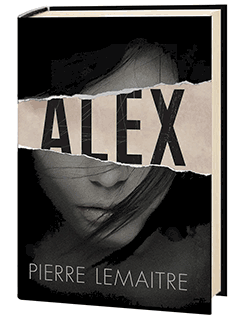
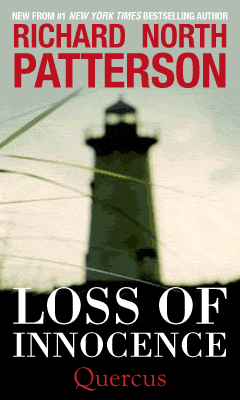
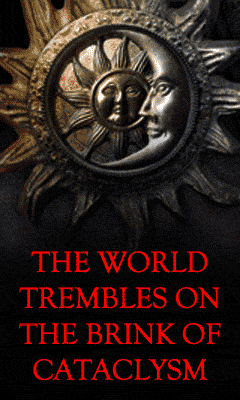


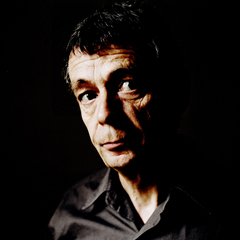 "I should never have studied literature so much," Pierre Lemaitre says of his life as a teacher, before he began writing crime fiction. "When you analyze closely Tolstoy, Proust, Dumas, Dickens, James, Flaubert, Woolf, Hugo, Dos Passos, Pushkin, Thomas Mann or Zweig... how could you not be impressed?" he asks. "You have to have some nerve to think 'I, too, am going to write a novel.' You need a dose of madness which, unfortunately, I did not have." And then, he explains, "a woman entered my life who thumped the table and said, 'Get to work!' I was not crazy enough to start working but I was sufficiently docile to at least try...." The effort has paid off--Lemaitre recently won the Crime Writers Association International Dagger Award. While Alex is Lemaitre's first novel to be translated into English, he has several other hits in his native France, including other novels featuring Camille Verhoeven, the police investigator whose role in this story is frequently overshadowed by the kidnapping victim he's trying to track down.
"I should never have studied literature so much," Pierre Lemaitre says of his life as a teacher, before he began writing crime fiction. "When you analyze closely Tolstoy, Proust, Dumas, Dickens, James, Flaubert, Woolf, Hugo, Dos Passos, Pushkin, Thomas Mann or Zweig... how could you not be impressed?" he asks. "You have to have some nerve to think 'I, too, am going to write a novel.' You need a dose of madness which, unfortunately, I did not have." And then, he explains, "a woman entered my life who thumped the table and said, 'Get to work!' I was not crazy enough to start working but I was sufficiently docile to at least try...." The effort has paid off--Lemaitre recently won the Crime Writers Association International Dagger Award. While Alex is Lemaitre's first novel to be translated into English, he has several other hits in his native France, including other novels featuring Camille Verhoeven, the police investigator whose role in this story is frequently overshadowed by the kidnapping victim he's trying to track down.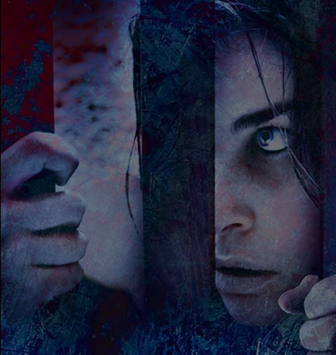 Is Alex's dominant presence in this narrative common to the novels, or does Camille play a larger role in the other stories?
Is Alex's dominant presence in this narrative common to the novels, or does Camille play a larger role in the other stories?